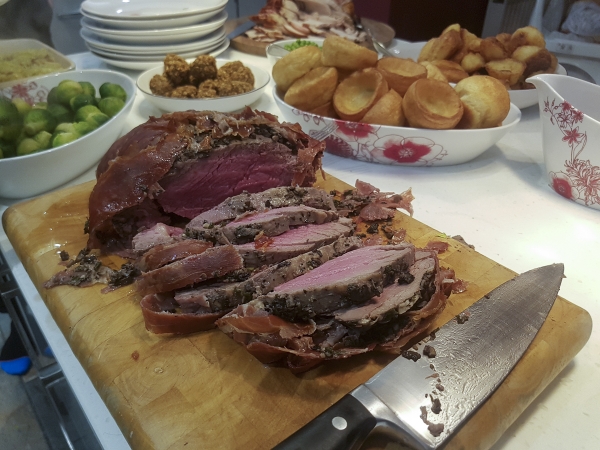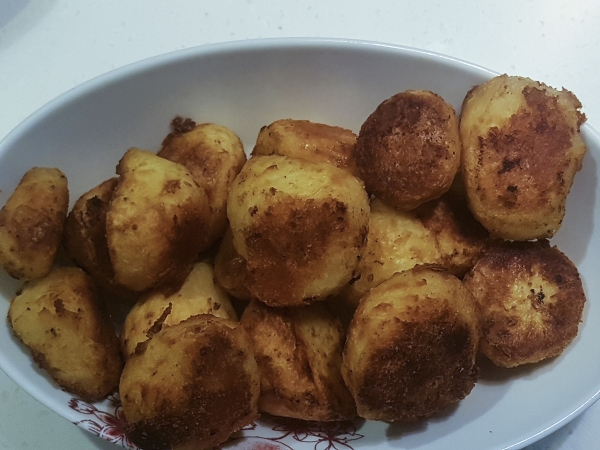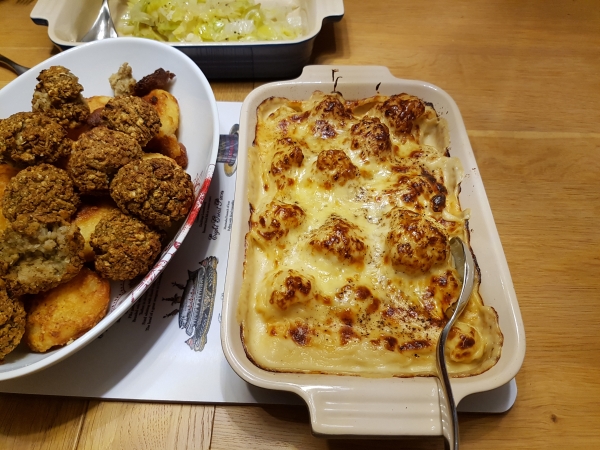Roasts

There is no rocket-science in roasting meat but it’s what goes with it that makes a difference. Spuds, veg and, above all, gravy. The key is knowing what to do with the bit you have; there are no bad cuts as such, just that roasting works for some while others, beef brisket for example, are nicer if they’re cooked in a different way.
Tip: “resting” roasted meat allows the juices that have been pushed towards the outside while cooking to spread back more evenly through the meat. Cover loosely in foil and leave for 10-15 minutes for birds and 20-30 for mammals (and turkey).
Not a gravy but not as pretentious as it sounds
So everything is a jus now but there are 2 important distinctions between jus and gravy. Gravy is pretty much a velouté which really means it’s thickened with flour and/or dairy of some sort. And gravy can have lumps of onion or whatever in it. Jus should be clear of any lumps.
This is why it crossed the road
Get the best chicken you can afford and ignore the packet cooking instructions but make sure you know how much it weighs
The real reason we have roasts on Sunday
There are several ways of making this, but the traditional description of gravy is that it’s made from the juices from the meat. Well, if you’re Achilles on the beach of Troy sacrificing 20 white bulls for the death of Patroclus then you might have enough juices for that but the rest of us use oxo.
It's all about the Dimethyl Sulfide, stupid!
Basically when you cook cabbage it produces Dimethyl Sulfide which is that nasty smell and not a great taste. However all you need to do is cook it properly - either quickly or slowly. Anything in between is pants. I'll put another recipe on for cooking it quickly but this is lovely



